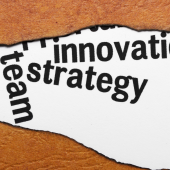Why a Bad Ceo is a Company Killer – Sell Hewlett Packard
“You’ve got to be kidding me” was the line tennis great John McEnroe made famous. He would yell it at officials when he thought they made a bad decision. I can’t think of a better line to yell at Leo Apotheker after last week’s announcements to shut down the tablet/WebOS business, spin-off (or sell) the PC business and buy Autonomy for $10.2B. Really. You’ve got to be kidding me.
HP has suffered mightily from a string of 3 really lousy CEOs. And, in a real way, they all have the same failing. They were wedded to their history and old-fashioned business notions, drove the company looking in the rear view mirror and were unable to direct HP along major trends toward future markets where the company could profitably grow!
Being fair, Mr. Apotheker inherited a bad situation at HP. His predecessors did a pretty good job of screwing up the company before he arrived. He’s just managing to follow the new HP tradition, and make the company worse.
HP was once an excellent market sensing company that invested in R&D and new product development, creating highly profitable market leading products. HP was one of the first “Silicon Valley” companies, creating enormous shareholder value by making and selling equipment (oscilliscopes for example) for the soon-to-explode computer industry. It was a leader in patent applications, new product launches and being first with products that engineers needed, and wanted.
Then Carly Fiorina decided the smart move in 2001 was to buy Compaq for $25B. Compaq was getting creamed by Dell, so Carly hoped to merge it with HP’s retail PC business and let “scale” create profits. Only, the PC business had long been a commodity industry with competitors competing on cost, and the profits largely going to Intel and Microsoft! The “synergistic” profits didn’t happen, and Carly got fired.
But she paved the way for HPs downfall. She was the first to cut R&D and new product development in favor of seeking market share in largely undifferentiated products. Why file 3,500 patents a year – especially when you were largely becoming a piece-assembly company of other people’s technology? To get the cash for acquisitions, supply chain investments and retail discounts Carly started a whole new tradition of doing less innovation, and spending a lot being a copy-cat.
But in an information economy, where almost all competitors have market access and can achieve highly efficient supply chains at low cost, there was no profit to the volume Carly sought. HP became HPQ – but the price paid was an internal shift away from investing in new markets and innovation, and heading straight toward commoditization and volume! The most valuable liquid in all creation – HP ink – was able to fund a lot of the company’s efforts, but it was rapidly becoming the “golden goose” receiving a paltry amount of feed. And itself entirely off the trend as people kept moving away from printed documents!
Mark Hurd replaced Carly, And he was willing to go her one better. If she was willing to reduce R&D and product development – well he was ready to outright slash it! And all the better, so he could buy other worn out companies with limited profits, declining share and management mis-aligned with market trends – like his 2008 $13.9B acquisition of EDS! Once a great services company, offshore outsourcing and rabid price competition had driven EDS nearly to the point of bankruptcy. It had gone through its own cost slashing, and was a break-even company with almost no growth prospects – leading many analysts to pan the acquisition idea. But Mr. Hurd believed in the old success formula of selling services (gee, it worked 20 years before for IBM, could it work again?) and volume. He simply believed that if he kept adding revenue and cutting cost, surely somewhere in there he’d find a pony!
And patent applications just kept falling. By the end of his cost-cutting reign, the once great R&D department at HP was a ghost of its former self. From 9%+ of revenues on new products, expenditures were down to under 2%! And patent applications had fallen by 2/3rds
Chart Source: AllThingsD.com “Is Innovation Dead at HP?“
The patent decline continued under Mr. Apotheker. The latest CEO intent on implementing an outdated, industrial success formula. But wait, he has committed to going even further! Now, HP will completely evacuate the PC business. Seems the easy answer is to say that consumer businesses simply aren’t profitable (MediaPost.com “Low Margin Consumers Do It Again, This Time to HP“) so HP has to shift its business entirely into the B-2-B realm. Wow, that worked so well for Sun Microsystems.
I guess somebody forgot to tell consumer produccts lacked profits to Apple, Amazon and NetFlix.
There’s no doubt Palm was a dumb acquisition by Mr. Hurd (pay attention Google.) Palm was a leader in PDAs (personal digital assistants,) at one time having over 80% market share! Palm was once as prevalent as RIM Blackberries (ahem.) But Palm did not invest sufficiently in the market shifts to smartphones, and even though it had technology and patents the market shifted away from its “core” and left Palm with outdated technology, products and limited market growth. By the time HP bought Palm it had lost its user base, its techology lead and its relevancy. Mr. Hurd’s ideas that somehow the technology had value without market relevance was another out-of-date industrial thought.
The only mistake Mr. Apotheker made regarding Palm was allowing the Touchpad to go to market at all – he wasted a lot of money and the HP brand by not killing it immediately!
It is pretty clear that the PC business is a waning giant. The remaining question is whether HP can find a buyer! As an investor, who would want a huge business that has marginal profits, declining sales, an extraordinarily dim future, expensive and lethargic suppliers and robust competitors rapidly obsoleting the entire technology? Getting out of PCs isn’t escaping the “consumer” business, because the consumer business is shifting to smartphones and tablets. Those who maintain hope for PCs all think it is the B-2-B market that will keep it alive. Getting out is simply because HP finally realized there just isn’t any profit there.
But, is the answer is to beef up the low-profit “services” business, and move into ERP software sales with a third-tier competitor?
I called Apotheker’s selection as CEO bad in this blog on 5 October, 2010 (HP and Nokia’s Bad CEO Selections). Because it was clear his history as CEO of SAP was not the right background to turn around HP. Today ERP (enterprise resource planning) applications like SAP are being seen for the locked-in, monolithic, buraucracy creating, innovation killing systems they really are. Their intent has always been, and remains, to force companies, functions and employees to replicate previous decisions. Not to learn and do anything new. They are designed to create rigidity, and assist cost cutting – and are antithetical to flexibility, market responsiveness and growth.
But following in the new HP tradition, Mr. Apotheker is reshuffling assets – closing the WebOS business, getting rid of all “consumer” businesses, and buying an ERP company! Imagine that! The former head of SAP is buying an SAP application! Regardless of what creates value in highly dynamic, global markets Mr. Apotheker is implementing what he knows how to do – operate an ERP company that sells “business solutions” while leaving everything else. He just can’t wait to get into the gladiator battle of pitting HP against SAP, Oracle, J.D. Edwards and the slew of other ERP competitors! Even if that market is over-supplied by extremely well funded competitors that have massive investments and enormously large installed client bases!
What HP desperately needs is to connect to the evolving marketplace. Quit looking at the past, and give customers solutions that fit where the market is headed. Customers aren’t moving toward where Apotheker is taking the company.
All 3 of HP’s CEOs have been a testament to just how bad things can go when the CEO is more convinced it is important to do what worked in the past, rather than doing what the market needs. When the CEO is locked-in to old thinking, old market dynamics and old solutions – rather than fixated on understanding trends, future scenarios and the solutions people want and need bad things happen.
There are a raft of unmet needs in the marketplace. For a decade HP has ignored them. Its CEOs have spent their time trying to figure out how to make old solutions work better, faster and cheaper. And in the process they have built large, but not very profitable businesses that are now uninteresting at best and largely at the precipice of failure. They have ignored market shifts in favor of doing more of the same. And the value of HP keeps declining – down 50% this year. For HP to change direction, to increase value, it needs a CEO and leadership team that can understand important trends, fulfill unmet needs and migrate customers to new solutions. HP needs to rediscover innovation.



